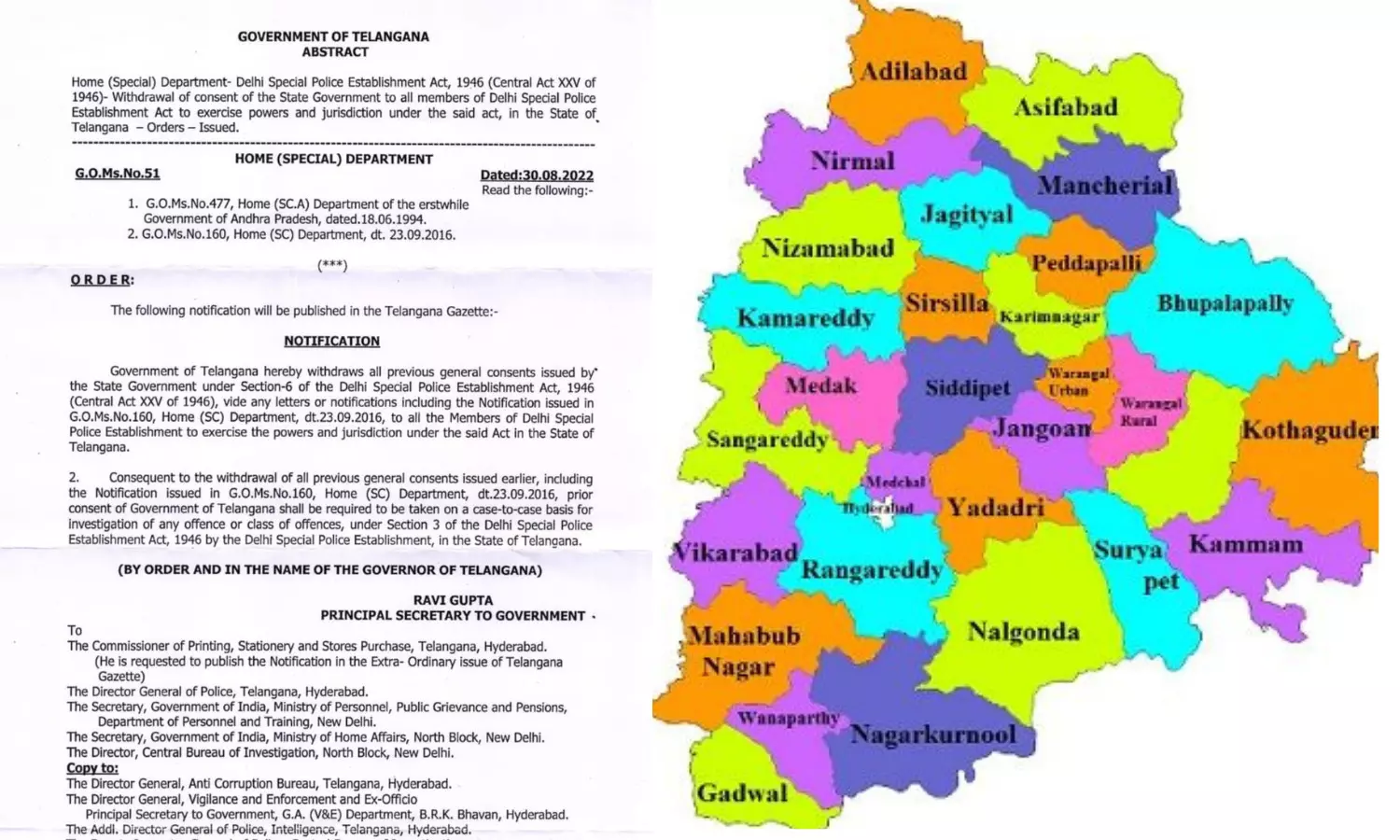Amid TRS MLAs poaching case, TS govt withdraws general consent to CBI
According to a state government directive issued on August 30, a prior agreement of the government is required for the central investigation agency to investigate cases in the state.
By Sumavarsha kandula
Hyderabad: The Telangana government has withdrawn the general consent granted to the state's Central Bureau of Investigation (CBI).
According to a state government directive issued on August 30, a prior agreement of the government is required for the central investigation agency to investigate cases in the state. Though dated two months back, the government order (G.O.) was not publicly available. On Saturday, the Additional Advocate General (AAG) informed the Telangana High Court, during arguments on a petition filed by the BJP seeking a CBI probe into the TRS MLAs poaching case, that the state government had withdrawn its general consent for the CBI.
According to the G.O., "The Government of Telangana hereby withdraws all previous general consents issued by the State Government under Section 6 of the Delhi Special Police Establishment Act, 1946 (Central Act XXV of 1946), via any letters or notifications, including the Notification issued in G.O.Ms.No.160, Home (S.C.) Department, dt.23.09.2016, to all the Members of the Delhi Special Police Establishment to exercise the powers and jurisdiction under the said Act in the State of Telangana."
According to Section 6 of the Delhi Special Police Establishment (DSPE) Act, 1946, the CBI needs consent from the respective state governments to conduct investigations in their jurisdictions.
If the general consent is revoked, the agency must obtain authorization from the state government before filing a complaint.
Advocate Syed Ghayas said, "The very Act says CBI has to take the consent of the states. It comes from the union itself. State government revoking consent and the central government saying giving consent or not is not an issue, leads to federal challenges."
"Now the issue is if the consent is revoked, what will happen, many times, crimes are interstate, and there are national security issues and such. In that case, the central government will have the power. It will then be up to the courts to decide if the case should be handed over to the CBI," he added.
High court advocate Karam Komireddy said, "Courts have the power to overrule the G.O., another legal argument is that can the state government revoke the consent completely? It depends on the case."
"Regarding the MLA poaching case, it will be heard on November 4, where it will be decided if it will be handed over to CBI or an SIT," he added.
Eight states have now withdrawn general consent for the CBI to investigate cases in their jurisdiction.